Andrea Lucado's Blog
September 13, 2021
Diet Culture, Our Bodies, and the Apostle Paul
“What are your food rules?” she asked me. “What do you mean, food rules?” “You know, the foods you let yourself eat, the types of meals you allow in your diet, and the types you don’t, when you eat, where you eat…” “Oh, gotcha,” I said. “Hm, I don’t know. I don’t have too many.” “Name a few,” she insisted. “OK. No white...
May 5, 2020
Tethered
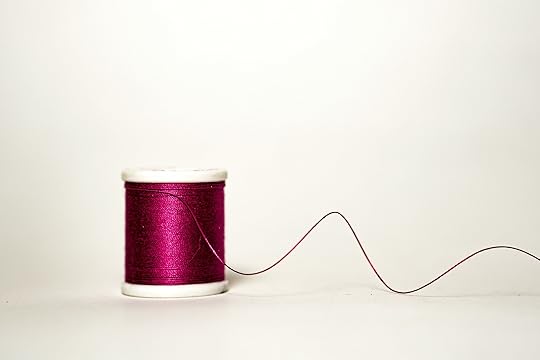
A few years ago, I read a profile of Hillsong pastor Carl Lentz in GQ Magazine. The writer was Jewish but unsure of her faith at the time and her perspective of him and his megachurch was fascinating. She described a conversation she had with Lentz about belief in God and how she suddenly had an urge to confess: “I wanted to tell him then that I feel lost lately, that sometimes I felt this overwhelming sense that I’m not tethered to anything real.”
I’ve never forgotten the way she described belief—as being tethered. To something real.
I have craved this feeling lately as I have felt so untethered from everything real in my life. Friends, work, church, relationships—it’s all sort of floaty. Some of it exists virtually, some of it exists in friends’ driveways from a social distance. But none of it feels very concrete. Even grocery shopping with the waiting in line outside and wearing of masks is a strange, dystopian experience. Not of this time, but another’s.
***
In mid-March when all of this started sweeping our side of the world, I suddenly found myself in touch with almost every friend I’ve ever had. Or at least, the ones I’ve had meaningful connections with. I was on a Zoom call with my friends from Nashville, some of whom I hadn’t spoken to in months. I FaceTimed with three girlfriends from high school whom I had never group FaceTimed with before. I was texting friends I hadn’t spoken to in over a year. A group text formed with some friends from church and has remained strong. I began to feel the tethers I had formed, some recently and some decades ago, pull me toward those on the other end.
A few weeks ago, I was talking to a non-church-going friend about church. He commented that I seemed to be very social, which is funny because I feel like I’m becoming more of a homebody with each passing day—and I felt this way well before COVID—but I explained to him that that’s how church people are. We do things together. We have weekly meetings, coffee catchups, discipleship groups, community groups, mid-week services. Call it what you want, we gather. We like to be together. I am sure this goes for every faith community.
“I guess that’s why people go,” my friend commented. And he wasn’t wrong. Something I’ve taken for granted as a lifelong church person is the community that comes with it. I don’t go to church just to grow spiritually. I go there to be with my friends, and to make friends. It’s like going to a running group or being a part of a book club, only with church, the common interest is God.
I felt this deeply while recently watching a virtual gathering of worship leaders from churches all over the UK sing a song called “The Blessing.” I’m a little embarrassed at how emotional this video made me. I’ve heard this song before, and I’ve seen lots of other choirs and worship teams pull together voices like this during a time when the church cannot physically meet, but there was something about everyone being from a different church, denomination, and theology, all singing the same song together that so perfectly captured what I’ve been imagining is there: an invisible, powerful network of threads pulling us to one another when we need each other most.
It’s something I can’t stop thinking about. This has not been a season of new for me. I don’t really have the capacity for new friendships or relationships or anything that falls on the surface-level side of interaction. I have found myself craving deep connection and reaching out to the ones I know I have that with. What a gift it is.
***
Today for work I was writing about Jesus as light. “I am the light of the world,” Jesus said in John 8:12. It reminded me of research I had done on this statement and its connection to the lampstand described in Exodus. The lampstand, or menorah, was big and heavy and made of one solid piece of gold. It provided light in the Holy Place in the tabernacle and was made of seven stems, one central stem with three others on each side. In the Jewish and Christian traditions, the lampstand holds a lot of meaning and symbolism (look up “almond blossom” if you really want to get into it). In Christianity, it prophesies the coming of Christ and later, in Revelation, the lampstand symbolizes the church. Jesus is the light of the world; the church is the light on the hill (Matthew 5:14). I like this imagery for the church. Not a building, but branch-like stems made from one piece of gold. Parts that are connected and always have been.
This is what I think about when I watch worship leaders worship together from their living rooms, and I end up on Zoom calls with friends in distant places or have a lengthy conversation in my group text about what we’re all making for dinner tonight. Because we are all making dinner. Every night. It is nice to be tethered right now and to remember this isn’t something I only need or have in this season. It is something I need and have always. The secret, invisible network of threads, the stems and the branch, the things that tether me to something real.
The post Tethered appeared first on Andrea Lucado.
June 12, 2019
To Settle

The other night at dinner while I was telling someone I had just met what I do for a living, I received a response I’ve grown quite accustomed to: “Oh, you freelance? Then you could live anywhere! Have you ever thought about traveling and working remote? That’s what I would do.”
“Yeah,” I told this person I had just met. “I’ve thought about that. Maybe I will one day. I tend to get bogged down in the logistics and the money, but I should just try it.”
I was trying to move the conversation along. The truth is, what he said made me feel defensive and uneasy. The same way I’ve felt other times this has come up. Why don’t you travel more? Why don’t you live overseas again and work from there? If I could do that, I would.
Every time I hear this, I feel ashamed, as if somehow I am not living my best life considering the freedom I have. I feel like I’m not adventurous enough. That I really do get too bogged down in the logistics and I begin to wish I were more spontaneous, that I worried less. But the other night, after talking to this guy, I realized, it’s not the logistics or fears or worries that are keeping me from this vagabond lifestyle.
About two and a half years ago, on an island off the Alaskan coast, I sat in a rustic cabin-like room with my roommate and new friend Devi. We were there for a writing workshop and had been divinely paired as roommates. One night Devi asked where I would move if I could live anywhere. For the first time in years, I was really honest with myself.
“I would move home,” I told her. Of all the places I could go—back to Oxford, to the west coast to the east coast, to some other coast far—home was where I wanted to go most. This verbal admission would be the first step in moving from Nashville, Tennessee, back to Texas, which I did only four months later.
People who are tethered to one certain place by their corporate careers, their kids or their spouses like to tell people like me—see the world! Go! Do what you want while you can!
But what if what I want is to settle? What if I don’t want to spread far, but instead, root deep? What if I have been other places and now where I want to be is here? Yes, I can go, but if what I want is to stay? Is that OK? Is that enough?
For someone like me it’s just as adventurous to get to know the few people nearby as it is to brush the shoulders of many en route. It requires more vulnerability, a willingness to connect that isn’t needed if I’m hopping around. We have developed an ideal of adventure as getting on a jet that will take you far away, but adventure is also having hard conversations. Staying friends even when you’ve been hurt. Sitting around the table and letting others see who you really are. Knocking on your new neighbor’s door to introduce yourself. These can be hard things. Harder, actually, than flying to Bali or working remote from Paris for a season.
Setting down roots is not for the faint of heart and maybe it’s time we stop idealizing going and start appreciating the hard beauty of staying.
The next time someone questions my decision to live in one place for an extended period of time this is what I will tell them: I am having an adventure here. I am attempting to root down even in the moments when all I want is to run far. I am trying to let others see me even when all I want is to be anonymous. I am sticking around in my friendships long enough for them to get messy. I am staying at a church, in a house and in a neighborhood long enough that others might notice if I go. I am here. I am staying. I am hoping to settle. And that, my friend, is enough of an adventure for me.
The post To Settle appeared first on Andrea Lucado.
January 8, 2019
Read. Pray. Stretch. Breathe. Cook.

About five years ago, my therapist at the time took me outside during one of our sessions and instructed me to sit down on a step and close my eyes.
“What do you hear?” she asked.
“Um, cars on the road?” I said.
“What else?”
I listened. “Birds.”
“What else?”
“The wind.”
This went on for a while then she asked me what I could smell.
“Grass…flowers…”
Then, she told me to open my eyes. She handed me a leaf.
“Look at this leaf,” she told me. “Describe it to me.”
I didn’t know what the purpose of this outdoor activity was. The weather was nice, and I was enjoying a break from the muddy waters of feelings I typically waded through during our sessions, but describing a leaf? I thought we might be erring on the side of kooky.
Later, my therapist would explain the purpose of this exercise: to practice mindfulness.
Mindfulness is a trendy word these days, but five years ago I had never heard of it. I didn’t know how to practice it, and I didn’t understand how it could help me. Mindfulness, as I understand it, is the practice of being present with your mind, body and spirit by noticing and being aware of what is around you in that moment. Sounds easy enough, but for someone like me, practicing presence of mind is incredibly difficult.
Most of my thoughts on any given day take place in the past or the future, rather than the present. When I’m in conversation with someone, I find myself thinking about the thing I need to do next. I stop mid-task, mid-T.V. show, mid-page to get up and do something I forgot to do. While I’m driving, I think about what I should have said, done or how I should have behaved differently.
I am rarely present with what’s right in front of me—the road, a book, my friend—and instead live a life that takes place in the future or in the past. What lives in the future? Anxiety and fear of the unknown. What lives in the past? Regret, worry, could-have-beens.
I often think about that day sitting outside looking at that leaf. I twisted it around in my hand. I still remember exactly what it looked like. Small, light green, smooth. That leaf was my introduction to the idea of being present, and it represents how I want to live my life in 2019, mindful of what’s in my direct line of sight. This year, I want to truly listen in conversation. I want to do the task at hand without doing other tasks in my head. I want to notice the weather and how it feels. I want to look at leaves and see the veins in them, feel their smooth and rough textures, study their deep green color.
I’ve realized one of the reasons practicing mindfulness is so difficult is that it requires quite a bit of surrender. Worrying about the future is a form of control. It allows me to try and imagine it, guess what will happen, make assumptions about events, people and things—all of which is an attempt to control what I can’t. Agonizing over my past is a similar form of control. At least agonizing over it allows me relive decisions and redo them, giving me the false that I can undo and redo what has already been done.
Living fully in the present means I have to loosen my grip on future’s fears and past’s regrets. Living in the present is a letting go and a confession that I am not in control.
This is what makes mindfulness a spiritual practice for me. It’s one of the many surrenders required in the Christian life. It is telling God, I trust you enough with my past and future to be with you here right now. It gives me the ability to see what God is doing, restoring and renewing right in front of me. And it allows me to see, notice and appreciate all that God has made, down to the very last leaf.
This week I posted on Instagram that I didn’t have any huge goals for this year. I just wanted to read, pray, stretch, breathe and cook. I realize now that all of those activities force me to be present. When I read, I am immersed in a story. When I pray, I am in conversation with God. When I do yoga, I am constantly instructed to return to my breath. When I pay attention to my breath, I am aware of my body and my lungs, the way air feels as it passes through me. And cooking, well, because I am not a very good cook, my mind can’t wander while I am chopping, sautéing and simmering. I have to give vegetables, knives, pots and pans my full attention or things will go awry quickly.
Read. Stretch. Breathe. Pray. Cook. They are simple things, but I do at least one of them every day, making the practice of presence a very doable, and daily, goal for me.
I want to be here for my life. I want to see, taste, smell, hear and feel it. This year, if you run across a kooky lady on the side of the road staring intently at a leaf, breathing in the air, and listening for all of the sounds, it is probably me and you can just keep on walking because that means I am doing alright.
The post Read. Pray. Stretch. Breathe. Cook. appeared first on Andrea Lucado.
December 20, 2018
My Top 5 Books of 2018
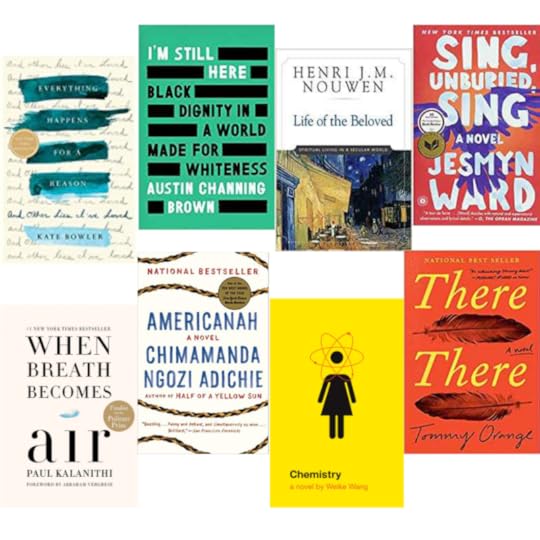
For a writer, I’ve never felt like I read enough. I always have a book going, but I’m not what people call a “voracious reader.” Without being intentional, I average a book a month, sometimes two. So this year for the first time ever, I set a reading goal: two books a month, 24 books total.
I’m proud to say that as I write this I am at the end of my 24th book for the year (Everything Happens for a Reason: And Other Lies I’ve Loved by Kate Bowling). This is probably the most I’ve read since I was in grad school and basically had to read 24 books a week. If you count a couple of books I read for work, I actually exceeded my goal.
Being intentional about how much I read meant more reading at night and in the morning and less social media scrolling. It reminded me why I love books so much. It helped me concentrate for longer periods of time without having to grab my phone and most importantly, it introduced me to others’ stories.
Of the 24 books I read this year, only seven were by people of color. Of those seven, three are my top three books of the year. I thought I had been more inclusive with my reading choices. Instead, the majority of the titles I grabbed this year were by people who look like me: white women. Lesson? Be intentional about reading books written by people—especially women—of color next year. Those stories are sticking with me most.
Without further ado, here are my top five books from 2018, in countdown form:
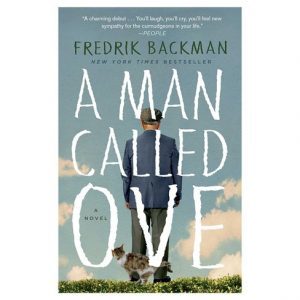
A Man Called Ove by Fredrik Backman
This read was delightful. Ove was a character I felt I knew personally by the end, and although at first I thought we had nothing in common, I grew to realize there were certainly parts of Ove in me. I love novels where the characters reflect back a piece of myself. It makes me feel more connected to the world.
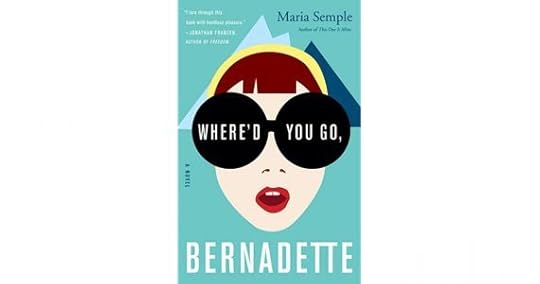
Where’d You Go, Bernadette by Maria Semple
I remember seeing this cover years ago when I worked in publishing and everybody was reading it. I bought this book based on cover alone because I couldn’t remember if people said they had liked it. I loved the absurdity of the tale, the complexity of Bernadette and the tenacious spirit of her daughter. Now I know why everybody has already read it.
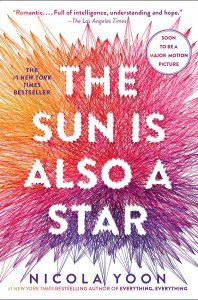
The Sun Is Also a Star by Nicola Yoon
To me, this is a near perfect story. I’m not always a fan of novels written from multiple points of view but this one really works. I clutched this book to my chest after I read the last page. Then, I couldn’t sleep—the sign of a truly good book.
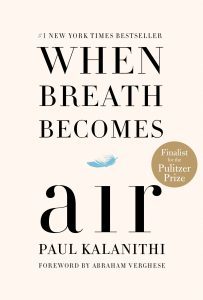
When Breath Becomes Air by Paul Kalanithi
As a writer of creative nonfiction, I was pretty stunned by this one. It is truly beautiful, and to know it was written between chemo treatments, in rare free moments during his hospital rounds, and at the very end of his life—it is still hard for me to believe. I am just so grateful Dr. Kalanithi wrote this book.
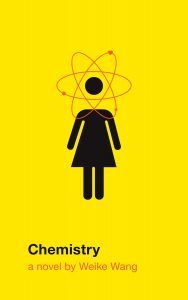
Chemistry by Weiki Wang
I haven’t been able to shake this one since I read it. I keep coming back to it as my favorite of the year. Wang’s style is unlike anything I’ve ever read. Short sentences. Very little description yet somehow I felt completely enveloped in the protagonist’s story, her nervous breakdown in graduate school, her inability to decide to take the next step in a relationship, and all from the perspective of a Chinese American woman grappling with a cross-cultural existence. This book is truly great. I don’t know how else to describe it. Just read it for yourself.
Reading slows us down. It opens our eyes to others’ perspectives. It exercises our minds and calms them at the same time. It is a love I’ve had for a long time and know I always will. Here’s to even more and better reading in 2019.
I leave you now with several honorable mentions, a couple of which just barely missed my top five list but are definitely worth reading.
Americanah by Chimamanda Ngozie Adichie
I’m Still Here by Austin Channing Brown
by Elizabeth Strout
Good Christian Sex by Bromleigh McCleneghan
Life After Life by Kate Atkinson
There, There by Tommy Orange
To Build a Trail by Paul Willis
The post My Top 5 Books of 2018 appeared first on Andrea Lucado.
August 21, 2018
A New Normal
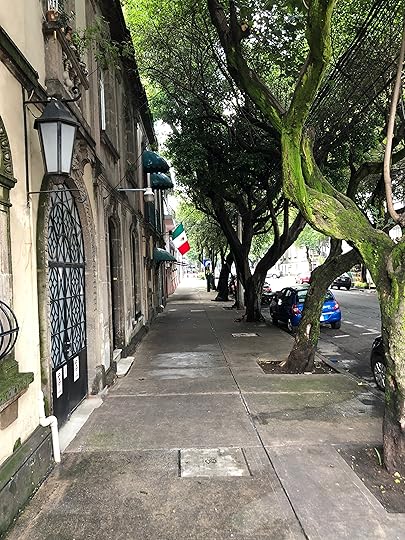
I recently returned from a trip to Mexico City. I went by myself. This is something I never thought I would do. Travel alone. But after talking with a friend who travels alone regularly and loves it, I decided to give it a shot.
It was a good trip, but it was strange. I am independent and always have been, but this felt next-level. I didn’t really recognize myself. Who was this person staying in a hotel alone, eating alone, adventuring alone? Do I like this? Is this me?
I went back and forth between loving time alone to explore and wishing I could just share my sandwich with somebody. Or point out an interesting building or laugh with someone about my terrible Spanish.
In the morning I’d be floating along the streets, coffee in hand, in awe of the beautiful moss-covered trees and sidewalks. By afternoon, I would start looking around for strangers to talk to, like the girl in the shoe store or the guy trying to sell me “candy” or the doorman at my hotel, who did not understand my Spanish, nor I his.
During a food tour I booked for the second day, a girl in my group asked me if I traveled alone often. “Never,” I said. “This is kind of an experiment.”
When I moved to Austin a year and a half ago, I was 30. The last time I moved to a new city I was 23. Moving at 30 and moving at 23 are very different experiences.
When I moved to Nashville in 2009, I found dozens of other girls just like me: young, single professionals, finding their newborn way through the real world. By the end of that first year I had a tight-nit group of girlfriends. We traveled together, went to happy hour together, cried over our first jobs together. With only ourselves to care for, we were available to each other most of the time. This group remained my closest friends in Nashville until the day I moved.
I realized recently that with one or two exceptions, I don’t have any single friends in Austin. I hang out with married people, engaged people, or people who are in serious relationships. Whereas in Nashville my age and life stage was consistent with the similar-aged people around me, in Austin in my thirties, this isn’t the case.
And I’ve had to adjust.
I remember talking to a friend right after she lost her dad. I asked her how she and her family were doing. “It’s a new normal,” she said.
This happens every once in a while doesn’t it? We reach an unexpected place in our lives and have to learn a new way of living around it, a new normal.
My new normal is not nearly as difficult as a new normal after you’ve lost someone you love, but it is a new way of living. I used to watch The Bachelor with a big group of my Nashville girlfriends. Now, I watch it with a good friend and her husband. I used to go to happy hour with a handful of other girls and complain about dating. Now, I third-wheel with my roommate and her fiancé (and I still complain about dating). Parties were once full of other singles. Now, they are full of young families, or couples who are headed that way.
It isn’t bad. It’s just different, and that has made the social adjustment in Austin a bit clunky. There was no category for me really. No door for me to walk through with a sign above that read, New-to-Austin, single, female, thirties. I sort of had to make my own way, carve out a door where there wasn’t one. I think I have, but it has taken time.
Here is something I am learning about life: It does not adjust to us. We must adjust to it. We must accept our realities, change our expectations and be OK with life looking different than it used to or different than we thought it would.
Before we adjust to the new normal, we try our darndest not to. We twist, fold and squeeze life into our own expectations of what we thought it would look like. We kick, scream and fight the new normal, as if that will make it go away. This is the messy part, the pre-surrender period when things feel off but we don’t know why.
I was in that season my first year here. It is only in recent months that I’ve begun to accept life will not look like it did in Nashville in 2009, and it can’t. It wouldn’t no matter where I had moved to. This change was always going to come, and an adjustment was always going to be necessary.
So while I do think my trip to Mexico City was an experiment to see if I like traveling alone, I wonder if more than that I made this trip to help me embrace this change. Like taking a long, surrendered step into my new normal.
New normals suck. They just do. I like my life to either go the direction I want it to go or stay the exact, comfortable same. But life has told me it does not adjust to me, and I am starting to believe it because the only thing that sucks more than a new normal is denying the new normal. This makes life really difficult, strange and nearly impossible to navigate.
I’m not sure where you are. Perhaps there is a long, surrendered step awaiting you, but you are hesitant to take it. It may not require a solo trip to Mexico City, but it may require something equally as challenging or scary. As someone who is actively yet cautiously beginning to step over to the other side, I don’t have much wisdom to give, but I have noticed that in transitions like this I tend to think the good is only behind or only over there, but if I’ve learned anything from long, surrendered steps I’ve taken in the past, it’s that the good is always ahead. We just have to have the courage–and humility–to walk that way.
The post A New Normal appeared first on Andrea Lucado.
May 2, 2018
What Releasing a Book Has Taught Me, One Year Later
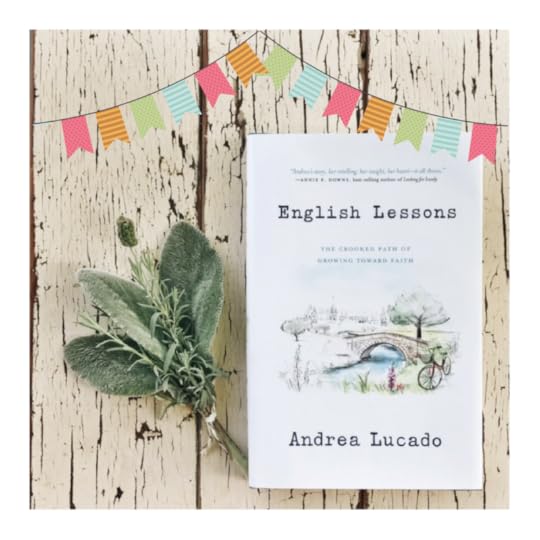
One year ago today English Lessons was born. To commemorate this book’s first birthday, I would like to write it a thank you note/birthday card. If you think this is strange, don’t worry, it is. But when you write a book, it kind of becomes its own entity. A person in itself. You birthed it, yes, but then you quickly learn it’s just going to do what it’s going to do. No matter how much you will it to be a certain way, to be read by certain people, to be understood as a certain thing. A book is magical in this way. In its ability to transcend its writer.
So English Lessons, on the occasion of your first birthday, I would to thank you for the many lessons you’ve taught me this past year. Here are a few.
Thank you for teaching me that I want to be a writer when I grow up.
Ok, I already knew this about myself, but the writing journey is ridden with fear and second-guessing. One day I think I am good at it and writing is definitely my path. The next I spiral into self-doubt and consider changing careers. I loved writing you, English Lessons. You are by far my most favorite project, my most worthwhile hours. (And I spent many hours on you, so I’m glad they were not a waste.) Even in the midst of having a full time job and writing for clients and other publications, you were what I wanted to work on most. You were what I cared about most. I want to make more things like you. I had always felt this deep down. Thank you for confirming that this is true.
Thank you for giving me tougher skin.
Not everybody has liked you, English Lessons. I’m sorry to tell you this. I was equally as sorry to hear it, but you know what? In the end, this was good for me. I like people to like me. In fact, I need people to like me. Releasing you into the world taught me that this will not always be the case and guess what. Even if people don’t like you or me, I will survive. We will survive. Their dislike will not kill us.
You are a very good representation of myself, my thoughts, my feelings and my beliefs. It was good for me to practice putting these deep-down truths in front of people. Even if they didn’t like them or agree with them, they were still true. They were still honest. They were still me. Being me is more important than being liked. You are what taught me this.
Thank you for teaching me that I need other people.
English Lessons, you did not come into this world alone. First, there were friends and family who encouraged me to write you. Then there were more friends and family who gathered around at the time of your birth. Throwing a book launch party, hosting signings, sending me emails and texts of encouragement, posting photos of you on social media. I needed people so desperately when you were being released because I felt more vulnerable than I’ve maybe ever felt. I needed my mom, my sisters, my dad, my friends more than they even know. In fact, without them, I don’t know that I would have ever let you be born, and that would have been so sad.
Thank you, perhaps most of all, for teaching me that God’s purpose for my life is not fame.
I have to confess to you, English Lessons, that once you were born, I started comparing you to a lot of other books. I started wondering if you were selling more copies than this book. If this book was better than yours and if so, why. I’m sorry I did this to you. (I’m sorry I do this to you still.) That is unfair, and it immediately steals the joy and pride I have in you when I do this.
I’ve always struggled with how to measure my writing. How to know if it’s good and worth pursuing. Is it when my work is flying off the shelves? When I have a certain amount of Instagram followers? When a blog post gets a certain amount of Facebook shares?
What you’ve taught me is that no, it’s not any of those things, and it can’t be. Because if that’s how I measure success, I will quit. What is enough sales? What is enough followers? What is enough recognition? Once I have it, I always always want more. What you’ve showed me is that God’s purpose for my life isn’t to be big and famous with my writing. It’s simply to use the gift I’ve been given in the best way I can. Some days I hold this truth well. Some days, I want to chuck it over the fence and write what will make me lots of money. And I sit down and I try that and then I realize, I honestly don’t know how to do that and the people who have figured this out are marketing geniuses and good for them. But I am not them. Thank you, English Lessons, for reminding me of that.
You’ve taught me a lot more, but I’m sure you’re embarrassed by all of my gushing by now, so I will stop and simply say, happy birthday, English Lessons. You’ve been a struggle, a joy, a source of pain, a source of hope. Overall though, I am so glad you were born.
**And to all of you—readers, friends, family—thank you for being with me this last year. So many of you have cheered for English Lessons, read English Lessons, supported English Lessons, told me how English Lessons resonated with you and your doubts and your story. We’ve raised this little guy together. I’m so grateful for that. You really actually have no idea how grateful I am for that.
The post What Releasing a Book Has Taught Me, One Year Later appeared first on Andrea Lucado.
April 24, 2018
Two Years of a Capsule Wardrobe: Why I Do It, What I’ve Learned
On February 1, 2016, I turned in the first draft of English Lessons to my publisher. A couple of days later, I found myself frantically cleaning out my closet. I mean, cleaning it out. Everything.
I had been reading about the concept of a capsule wardrobe—the idea of applying the principles of minimalism to your clothes, wearing only a few pieces each season and shopping sparingly and intentionally.
This was an incredibly novel idea for me since I had always shopped spontaneously, picking up a t-shirt while shopping for candles at Target, hitting up whatever store I had a gift card to not because I was in need of a certain item but just because I could, shopping with my mom and sisters when we were together just for fun.
I was wary of the idea of a capsule, and I was even more wary of my ability to follow through with it, but something about turning in my first book and the way it made me feel terrified, out of control and at the mercy of my editor, but relieved and celebratory all at once—like if I could turn in a book, I could do anything—made this whole capsule wardrobe thing suddenly feel feasible, and needed.
Hence, my big closet clean out. That is, after all, the first step of building a capsule, according to Caroline Joy Rector’s method, which is the method I followed and still loosely do.
I divided all of my clothes into three piles, as she instructed:
Love it and would wear it right now
Maybe (haven’t worn it in a while, but still like it)
Nope (need to give away/sell asap)
I had a lot of clothes.
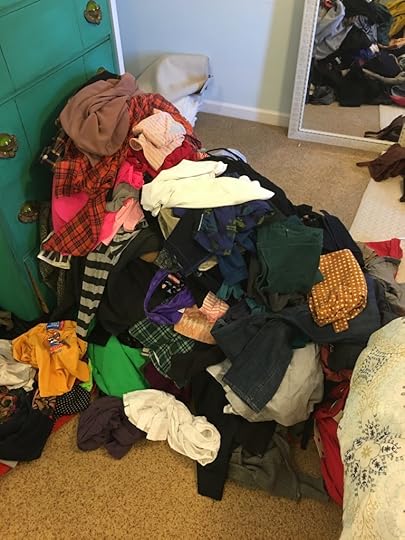 This is just my “nope” pile.
This is just my “nope” pile.I had a lot of shoes.
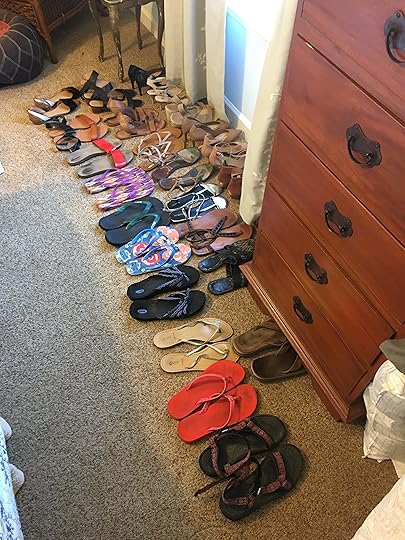
I mean, a lot of shoes.
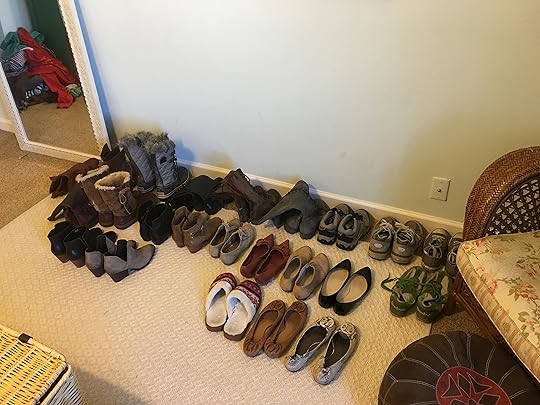
And I’ve never even considered myself a “shoe person.”
What you see in these photos are years and years of clothing purchases and my neglect to be honest about what I actually wore. I gave clothes away pretty regularly, but I clearly still held on to way more than I needed.
The second step was picking out my items for that season, which was spring (March, April, May). Caroline recommended choosing around 37 items per season. This does not include lounge wear, athletic wear, underwear or accessories like scarves and bags.
My first season went ok. Picking out my items was fun and entering my closet, so suddenly strikingly clean, was no longer anxiety inducing. It was an enjoyable place to be. A place where I could actually think about what I wanted to wear instead of a place that I was trying to escape as quickly as possible. (P.S. My closet in my house in Austin is a fraction of this size, and my seasonal wardrobe still easily fits.)
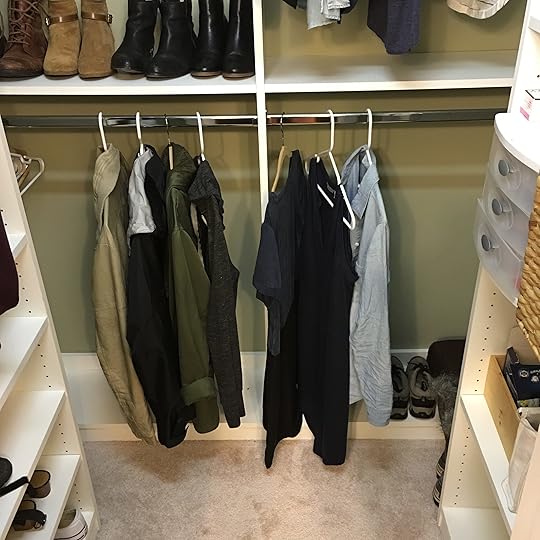
Not far into the season, I realized I had chosen some pieces I didn’t love and so I did a lot of going back and forth to the mall, returning things I’d bought and ordered online, like that polka dot t-shirt. I was paring down my style, figuring out what I liked and didn’t and really thinking about this for the first time. This was also a season in which I was investing in getting my eyebrowns waxed and tinted. I should start doing that again.
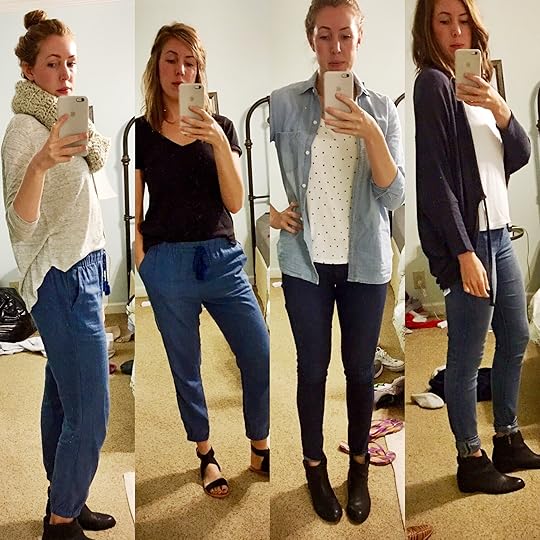
This has been the best part about doing a capsule wardrobe over these last couple of years, discovering my personal style. Caroline said this would happen, and it did. I owned so many clothes I didn’t actually like, but I didn’t know I didn’t like them. Now that I was only shopping for specific seasons and wearing my clothes so often, I was discovering very quickly what I actually wanted to wear on a daily basis.
I’m now in my ninth season of a capsule wardrobe. This is kind of amazing because I tend to start things strong and then completely abandon them. (Which is why it’s also kind of amazing that I finished a book.) And I should clarify, I don’t buy all new items for each season. I roll over 80% of what I wear and shop for four or five (ok sometimes six or seven) new things per season. I do get sick of my clothes more quickly because I wear them so often and I’m tempted to give something away and replace it with something new, but I’m learning if I can retire a piece for a season or two, I’m usually ready to wear it again later in the year.
I realize this type of blog post is a bit of a departure from my normal repertoire of spirituality, faith and writing topics, but I like to write about lessons I’ve learned and where I’ve learned them. The capsule wardrobe is yet another life teacher for me.
Here are some of the reasons I’ve stuck with doing the capsule for as long as I have and what it’s taught me:
I have a style, and I am very picky about it.
I already touched on this above, but I am so picky about clothes now. If I don’t love it and want to wear it all the time, it goes back to the store. Sometimes it takes me a few wears to figure this out and by then, returning isn’t an option, but this is happening less and less, which makes me think my style is becoming more and more clear.
Some things I’ve learned about my style that I didn’t know:
I don’t love color. I like grey, black, blue, and white best and that is what makes up 90% of my wardrobe now.
I like interesting structures. Boxy tops, wide legged pants. Classics with a modern twist, if you will.
I don’t like J.Crew. For years I thought I loved J.Crew. I shopped there all the time. Now, it doesn’t fit my style. (Except their denim. I like their denim.)
I also don’t really like Gap or Anthropologie.
I love Madewell, Top Shop and Aritzia, some things from Amour Vert, and Dolce Vita and Nisolo for shoes. (Though I think for the price, Nisolo’s shoes should be way more comfortable than they are.)
You’ll notice a lot of repetition and overlap in my latest capsules. You may even spy a couple of items from that very first capsule that I’m still wearing! You also might notice that I’m blonder now and I tried bangs (RIP).
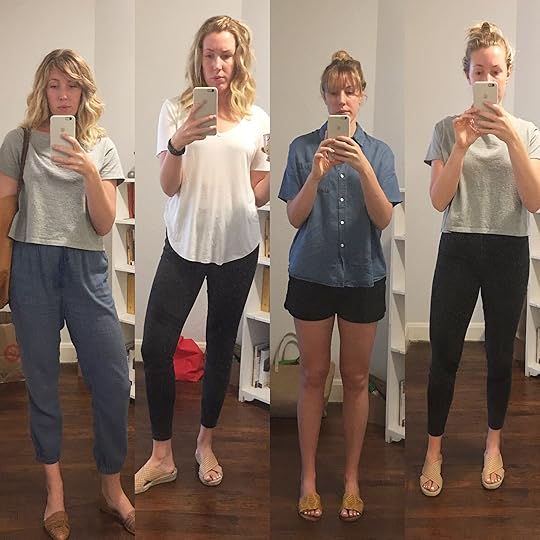
Summer 2017
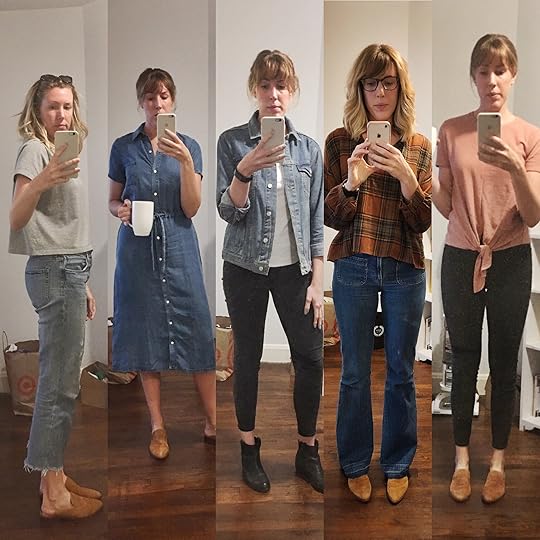
Fall 2017

Winter 2017/18
I use shopping as a coping mechanism.
This is something Caroline wrote about that I thought didn’t apply to me. Then, when I suddenly couldn’t shop whenever I wanted, I realized I do it too. When I’m sad, lonely, bored, anxious, I want to spend money, and I usually want to spend it on clothes I don’t need. Now I occasionally catch myself online shopping at West Elm or buying too many candles at Target. I’m still trying to cope through shopping, but the capsule has at least made me aware of it.
I am drawn toward minimalism in other areas of my life.
I think the capsule wardrobe philosophy has started to bleed into other areas of my life. Before I moved to Austin in early 2017, I had a big living room sale. I sold as much as I could wanting to take as little with me as possible. I would not have considered doing this before. I would have just packed everything up. But now that I knew I could live with a fraction of my wardrobe, I thought I could probably do that with my other stuff too.
I sold, or gave away, furniture, artwork, home décor, dishes, clothes, shoes, rugs. And I haven’t missed any of it.
Fashion is art.
I already believed this, but intentionally shopping and thinking more carefully about my outfits each day has confirmed my thoughts on art and clothes and the amazing creative expression they can be. See Instagram rant below:
March 6, 2018
When I Am Certain of Nothing Else
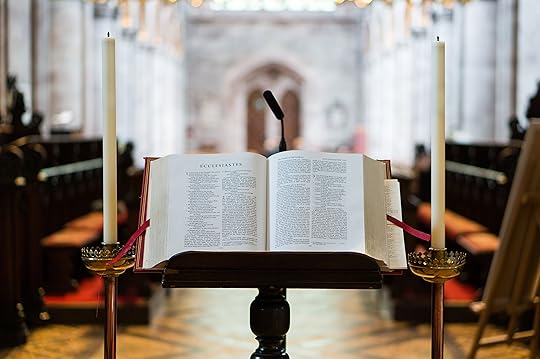
The first part of 2018 has looked very different from my past few years as a full-time writer. As a writer, I spend most of my days alone typing at my computer, with the occasional phone call thrown in. But this year, I’ve had several speaking engagements that have required preparation and travel. I’ve been writing, but I’ve been writing talks and sermons, and I’ve spent a good deal of time in my living room reading over them and timing myself. My vocal chords are adjusting to what are typically quiet days.
While I’ve enjoyed these opportunities to craft and deliver a message in a new way, I have always felt a bit uncomfortable with the posture speakers must take. Standing on a stage, behind a podium, in front of an audience, with a microphone to amplify her voice. As if she is so confident. As if she is so certain. When really, I feel little of either. I paint my nails. I wear eyeliner. I think carefully about my hair and outfit. But I am probably doing these things to compensate for my lack of confidence and certainty. I want my outsides to match the environment—the stage, the mic, the podium—even if my insides rarely do.
The majority of these speaking engagements have been in church settings and, therefore, the majority of my talks have been on biblical topics. This makes assuming the speaker’s posture even more difficult for me. My faith is ever evolving and with it, so am I. How I understood God two years ago is very different from how I understand him today. And the older I get, the less certain I feel about how I’ve always believed things to be. I am so consistently proven wrong. I can no longer hold truths as tightly as I once did. And I become acutely aware of this uncertainty in the place I feel I am expected to be most certain: the podium.
Another setting in which I often become so acutely aware of my uncertainty is in conversations with people of other faiths. I had one of these recently with a friend who had good and thoughtful questions about Christianity. Many of my responses were along the lines of, “That’s a good question. I’m not sure.” Historically, my lack of answers would have been unsettling for me, but this time felt different. I sat more comfortably in the tension. I tried to hold both of our faiths’ in my hands, rather than clinching my fists around mine.
To me, the humility of uncertainty is the mark of growth. The grasping for certainty is the mark of a fear of growth, a resistance to what is uncomfortable in the moment but could teach you so much in the future. The older I get, the more wary I am of others who claim to be certain and the more drawn I am to those who can admit they are not.
That being said, let me now (hypocritically) say this. In the midst of all of my uncertainty, there is one experience I continue to feel great certainty in: Through the life and teachings of Jesus, I have felt loved by God, and this love has changed me.
This is what I felt beneath my uncertainty when having that conversation with my friend. I felt uncertain, but I also recalled this feeling of being deeply loved—something so difficult to articulate but probably the only thing that has kept me here in this faith for so very long.
You cannot fabricate the feeling of being loved. Trust me, I’ve tried. You probably have too. Remember that boy you loved who didn’t love you back, but each time he looked at you or said “hello” in passing you read into his tone and his body language and convinced yourself he was in love with you too? You made up thoughts he had about you. You told yourself he was just holding back from expressing his love until the proper time.
And remember how hard the crash back to reality was when what you knew all along deep down was finally proven true: He did not love you. He was not just holding back for fear of exposing his true feelings. When he waved in passing and said hello, that’s really all he was doing—waving in passing and saying hello.
No, you cannot fabricate the feeling of being loved in a way that is meaningful and life-changing. It is a hollow dream. An illusion that turns to vapor and leaves your open hands empty.
This has not been my experience with the love of God. I have not yet crashed to the reality of my fabrication of being loved by him. In fact, I seem to be falling deeper into the awareness of being loved by him. The longer I live, the more I mess up, the more loved I feel. How is this possible? Perhaps a psychologist could explain, but I think I’ve experienced enough unrequited love to know the difference by now. I’m at a point where I cannot help but succumb to the reality of being loved by this being I cannot see but can so deeply feel.
This is what I come back to when I know nothing else. I feel loved in the moments that I should not feel loved. I feel loved as someone who has done very little in life to deserve such a love. In spite of it all, I feel loved. This love has changed me, and it is through this lens that I now see the world, and it is so much more beautiful than it was before.
This knowledge of love allows me to say things like, “That’s a good question. I’m not sure.” When I am unfeeling of, or unaware of this love, I feel the need to clinch my fist and prove my point. The more I feel loved, the more I can open my hands and let myself sink into uncertainty. It sounds backwards to feel more loved by God even as I confess I know less and less about him. But I am beginning to think a lot of this Christian faith is very backwards, and I should just get used to that.
So if you see me speak somewhere this year, know that I will say a lot of things, and I will feel varying amounts of certainty at various times about those things. I will be wearing eyeliner and I will have painted my nails to make myself look put together and like I know things, but really, all I know is this: I am loved in a way that I cannot help. I am loved in a way that has changed me and continues to change me. It is the great mystery of my life. It is the great truth of my life. And even though I will keep talking for around 45 minutes, when it’s all said and done, that is really all I have to say.
The post When I Am Certain of Nothing Else appeared first on Andrea Lucado.
November 30, 2017
When You Study the Bible for a Living

A few weeks ago my community group at church discussed this question: What is your relationship with scripture right now? I thought about it for a while and said, “It’s complicated. Scripture can feel like my job sometimes.”
I study the Bible for a living. A lot of my freelance work over the years has been in the religious publishing sector. Right now, I contribute monthly to a women’s devotional site. I am working on a study guide for a Christian book releasing next year, and I blog weekly for a Bible study company. All of this work entails reading scripture, studying it, interpreting it and applying it in a way that will connect with readers. And for all of it, I am paid.
That’s normal, to get paid for the work you do. But it gets weird when the paid work centers around a faith I already have. A book I already read and already try to apply to my life. It is strange to monetize my faith in this way. To incorporate it into my business.
I am writing for clients who have specific audiences and content needs. A writer’s job is to connect with her readers, so I try and write in such a way that will do this. I package the Word. And this can make it feel like I am a marketing rep for scripture. It feels strange. Not wrong. Just, strange. And I wonder if it can take from the mystery and beauty that is figuring out faith.
Whenever I begin studying a passage of scripture, I start with questions. I actually write question marks in my Bible by words or verses I don’t understand. Sometimes these questions are easily answered by looking up a cross reference or another version of the Bible or reading a commentary, and I write down that answer after the question mark in the margin. But sometimes, those question marks remain there, alone. I don’t find an answer. Or, I find 15 different ones because nobody seems to agree on what this particular thing means.
I have a lot of questions about the Bible.
But when I am writing about the Bible for my job, I am usually not hired to raise questions about the Bible. I am hired to actually do the opposite, answer them. Help explain this complex and at times difficult to understand text. I am supposed to write as if I know exactly what it means, not only for me, but for you too. And to be honest, sometimes I just don’t. For this reason, I feel incredibly ill-equipped to be writing about scripture and wish I could stick to scrawling numerous question marks across my old NKJV.
This week my church wrapped up a series called Catechesis: What the Church Has Always Believed. It was a great opportunity for us to ask questions about Christianity and to be honest with ourselves about what we actually believe as far as the pillars of our religion. At the end of this week’s message, our pastor talked about how communal our faith is, and always has been. The church is not a place where we go and listen to the one person who has it all figured out and will tell us what this all means. The church is a place where we work out our faith together. Sometimes our friend is very certain about an aspect of the faith while we are not. That’s OK. Sometime we are very certain about one thing while our friend is not. That’s OK. The point is not to make sure we have it all figured out all of the time. The point is to work together to understand, listening to one another, to scripture, to the Holy Spirit.
Perhaps this is why studying the Bible for a living can make me feel uncomfortable. I know, deep down, that I am still figuring this stuff out and that when I write about it, it can appear as if I already have it figured out, as if I am not still in process and that my Bible is not still full of question marks. And to be honest, I can sometimes fool myself into thinking I do have it figured out. People are paying me to do this. Other people are reading my stuff. Clearly, I can consider myself some sort of authority. But the truth is, I can write with certainty while feeling very uncertain. And I can write with clarity, while feeling very unclear about a topic. This is because I am a professional writer. I am not a professional Christian. Nor do I want to be.
I want to start looking at my Christian writing not as an attempt to help explain the Bible to people, but as an attempt to do what my pastor talked about on Sunday: a way to work with the church body toward an understanding, together. Rather than feeling the pressure to find the answers, I want to give myself permission to hold onto the questions, confess when I am uncertain, and write from a more honest place. I think this will help open my faith back up to me, taking what I like to stifle with study and knowledge and turning it over so that I can again see its mystery and beauty.
The post When You Study the Bible for a Living appeared first on Andrea Lucado.




